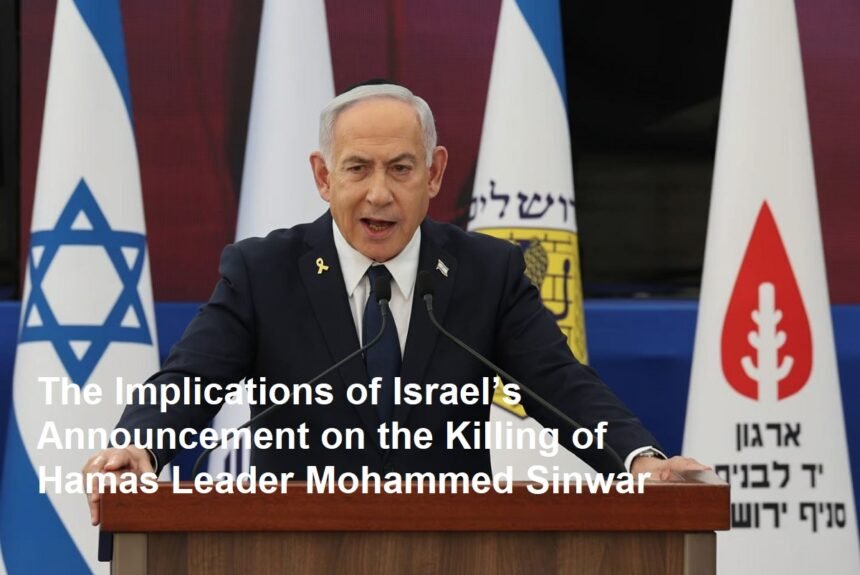On Wednesday, May 21, 2025, Israeli Prime Minister Benjamin Netanyahu publicly declared that Israeli forces had successfully killed Mohammed Sinwar, the leader of Hamas in the Gaza Strip. This announcement, made during a press conference, marks a significant development in the ongoing Israeli-Palestinian conflict and carries profound political, security, and regional implications.
Mohammed Sinwar has long been recognized as a central figure within Hamas, the Palestinian Islamist organization that governs the Gaza Strip and is regarded by Israel, the United States, and other countries as a terrorist group. Sinwar’s leadership has been characterized by his hardline stance against Israel and his role in directing Hamas’s military and political strategies. As such, his elimination could be perceived by Israel as a strategic victory aimed at weakening the operational capabilities of Hamas and diminishing the group’s influence in Gaza.
The context of this announcement is critical to understanding its broader significance. The Israeli-Palestinian conflict has been marked by cyclical violence, including rocket attacks from Gaza, Israeli military operations, and repeated attempts at peace negotiations that have so far failed to yield lasting results. In recent years, tensions have escalated due to both political developments and ground realities, with Gaza experiencing frequent clashes that have resulted in significant casualties on both sides. The killing of Sinwar may be intended to deter future attacks by demonstrating Israel’s resolve and capability to target high-profile militant leaders.
From a political perspective, Prime Minister Netanyahu’s declaration serves to reinforce his administration’s position on security and counterterrorism. Netanyahu has often adopted a strong security-first approach in addressing threats from Hamas and other militant organizations. By announcing the death of Sinwar, Netanyahu likely aims to consolidate domestic support ahead of political challenges and to project strength to both Israeli citizens and international observers.
However, this development also risks exacerbating the already fragile situation in Gaza and the West Bank. The death of a prominent figure like Sinwar could lead to retaliation by Hamas and affiliated groups, potentially triggering a new round of violence. Hamas may view this killing not only as a strategic loss but also as a provocation, which could undermine prospects for stability and increase the suffering of civilians caught in the crossfire.
On the international stage, reactions to Israel’s announcement are expected to vary. Allies of Israel may express support for its right to self-defense and its efforts to combat terrorism. Conversely, others, including Palestinian supporters and some international organizations, may condemn the killing as an act that could escalate tensions and impede peace efforts. This polarizing event underscores the complex dynamics of international diplomacy in the Israeli-Palestinian conflict, where actions on the ground are scrutinized and politicized in global forums.
The operational details of the strike that resulted in Sinwar’s death have not been fully disclosed at the time of the announcement. Typically, Israeli operations targeting militant leaders involve intelligence gathering and precision strikes intended to minimize collateral damage. Nonetheless, civilian casualties and infrastructural destruction in Gaza have historically accompanied such operations, raising concerns about humanitarian consequences and the proportionality of responses in asymmetric conflict.
In conclusion, the killing of Mohammed Sinwar, as announced by Israeli Prime Minister Benjamin Netanyahu, represents a pivotal moment in the troubled history of the Israeli-Palestinian conflict. While it signifies a tactical success for Israel’s security objectives, it simultaneously presents the danger of intensified violence and further destabilization in the region. Moving forward, it is crucial for all parties involved to consider the broader ramifications of such actions, including the potential impacts on peace negotiations, civilian safety, and regional stability. The international community must also remain engaged in efforts to foster dialogue and reconciliation, recognizing that sustainable peace can only be achieved through addressing the root causes of the conflict rather than relying solely on military measures.









